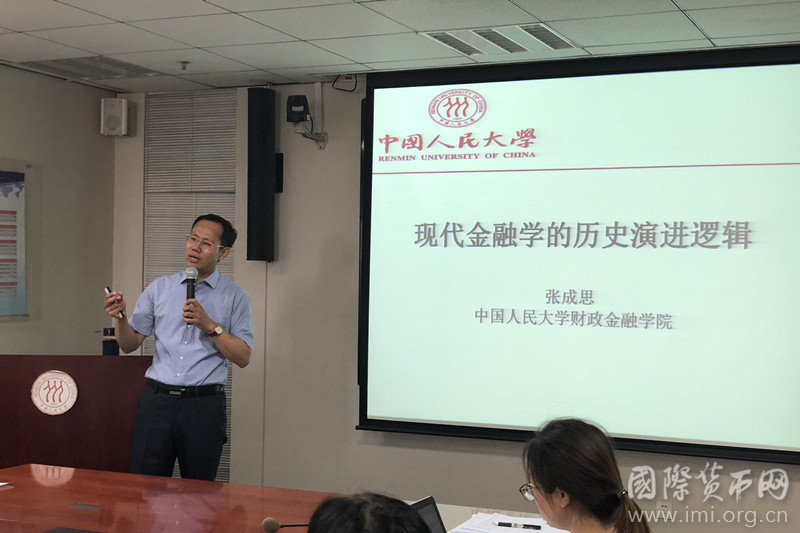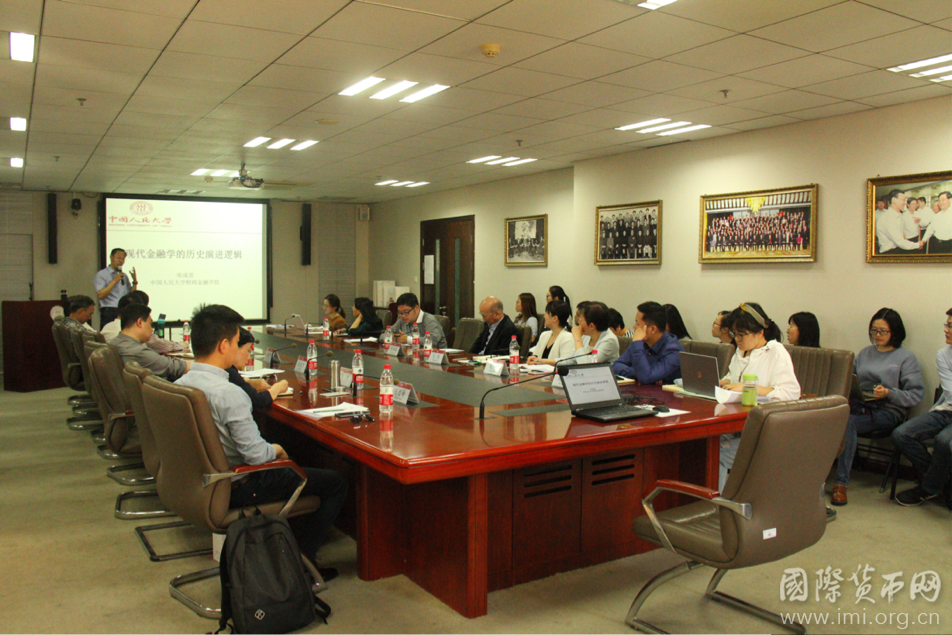Macro-Finance Salon (No. 121): The Historical Evolution of Modern Finance Discipline and the Logic Behind
2019-05-07 IMI Professor Zhang Chengsi divides modern finance discipline into two branches, macro-finance and micro-finance. After reviewing the historical evolution of their core theories, he abstracted the internal logical connections between two seemingly separate branches and pointed out that financial price connects these two branches. Learning from the ups and downs of related theories, we can conclude that any quantitative financial theory that avoids or rejects to consider financial price is doomed to failure because of the separation of theory and practice.
Professor Zhao Wanli shared his view from the perspective of corporate finance during comment session. He said that corporate finance researches focus on capital structure, executives, mergers and acquisitions, financing, equity structure and corporate governance. The key to agency problem is the frictions caused by information asymmetry and divergent motives. There are many intersections between corporate finance and economics, such as information asymmetry and game theory. Contract theory in economics is also widely used in corporate finance. In the end, he said that China should establish its own finance theory.
Professor Erh-Cheng Hwa also commented that finance should develop with times, and theory should reflect economic and social development. For instance, how can we determine money amount when economic situation changes? How can we match economic aggregate with social financing scale? When studying monetary theory, we should pay attention to monetary transmission mechanism. He also mentioned that when studying microfinance, we should pay attention to interest rate risks and absentee owners.
Professor Zhang Chengsi divides modern finance discipline into two branches, macro-finance and micro-finance. After reviewing the historical evolution of their core theories, he abstracted the internal logical connections between two seemingly separate branches and pointed out that financial price connects these two branches. Learning from the ups and downs of related theories, we can conclude that any quantitative financial theory that avoids or rejects to consider financial price is doomed to failure because of the separation of theory and practice.
Professor Zhao Wanli shared his view from the perspective of corporate finance during comment session. He said that corporate finance researches focus on capital structure, executives, mergers and acquisitions, financing, equity structure and corporate governance. The key to agency problem is the frictions caused by information asymmetry and divergent motives. There are many intersections between corporate finance and economics, such as information asymmetry and game theory. Contract theory in economics is also widely used in corporate finance. In the end, he said that China should establish its own finance theory.
Professor Erh-Cheng Hwa also commented that finance should develop with times, and theory should reflect economic and social development. For instance, how can we determine money amount when economic situation changes? How can we match economic aggregate with social financing scale? When studying monetary theory, we should pay attention to monetary transmission mechanism. He also mentioned that when studying microfinance, we should pay attention to interest rate risks and absentee owners.
 During discussion, guests talked about issues on interest rate marketization, price indicator, the connection of macro-finance and micro-finance, syllabus of finance and so on.
During discussion, guests talked about issues on interest rate marketization, price indicator, the connection of macro-finance and micro-finance, syllabus of finance and so on.
